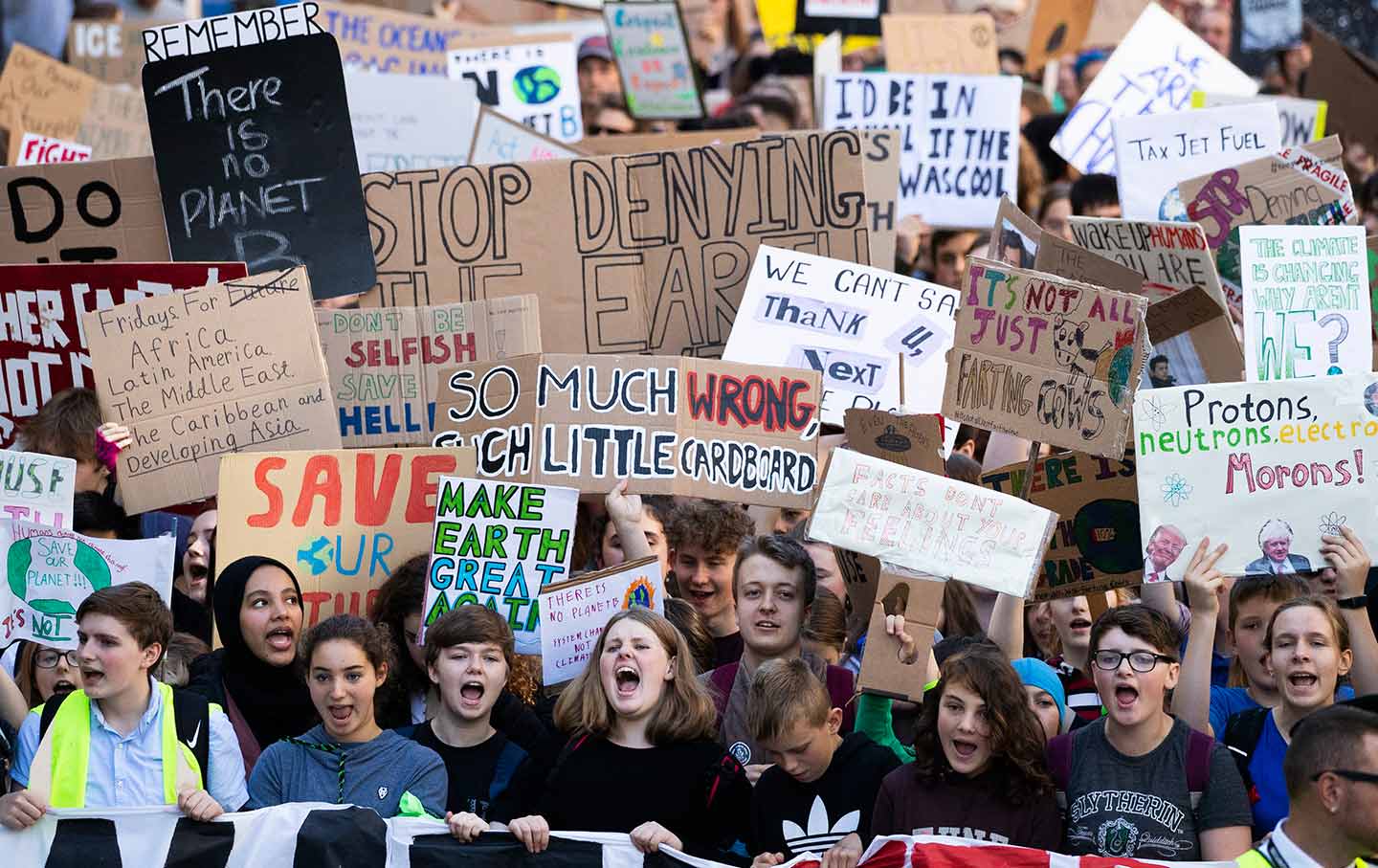From September 20th to 27th, over seven million people from around the world participated in the Global Climate Strike for climate action. During the largest climate strike in history, participants were able to spread awareness about the current climate crisis and demand action from world leaders. In Boston, thousands gathered in City Hall Plaza to demand that Governor Charlie Baker declare a statewide climate emergency, that lawmakers pass laws to help those living in polluted and poor areas, and that Massachusetts citizens stop using fossil fuels.
Climate change is a major problem that is already extremely severe. At this point, researchers from NASA’s Jet Propulsion Laboratory and the University of California, Irvine have concluded that the West Antarctic Ice Sheet has already melted to the point that there is no way to stop the retreat of these glaciers, even if immediate action is taken. Luckily, many species and ecosystems that are being impacted by climate change will benefit from climate action. For example, coral reefs can regain the vital photosynthetic algae called Zooxanthellae that they’ve lost due to increased ocean temperatures. If these corals are able to regain their algae, the nutrients provided by these living coral reefs will be able to support reef populations.
Actions such as the Global Climate Strike are a major step in spreading awareness about climate change and demanding that policies be made to reduce carbon emissions, but I believe that there is much more that must be done in order to drastically reduce carbon emissions and have an actual impact on the global temperature. In addition to community and state-level actions, people must realize their own, individual ecological footprints. In the United States, the average American emits 20 metric tons of carbon dioxide per year. While global action is vital, we must also take action by making small changes in our own lifestyles.
Just by making simple changes such as reducing meat consumption or travelling less, we decrease how much carbon dioxide we are individually emitting. I believe that we will be unable to reduce our carbon dioxide emissions without the support of our world leaders, but we also need the contributions of individuals. It is vital that each person understands the changes that will have a large effect on their ecological footprint, as some actions emit more carbon than others. For example, the carbon emission of a single-use plastic straw is 1.46 grams, whereas a cheeseburger is 3.4 to 4.82 kilograms! Around Marblehead, I have observed that most people are aware of the fact that straws emit carbon and are taking action to use fewer straws and use paper or metal straws that emit less carbon dioxide during production. However, people are often unaware that meat is a much larger source of carbon dioxide-equivalent gases. Just by eating one cheeseburger, you have emitted around 4,000 more grams of carbon dioxide than you would by using a straw.
When spreading awareness about climate action, we must take an all-inclusive approach. Climate change is not a simple problem, and there is no one answer for how to effectively reduce carbon dioxide emissions. By providing people with information about how world leaders can help, in addition to which individual changes have the largest impact, we can best address the climate crisis.

